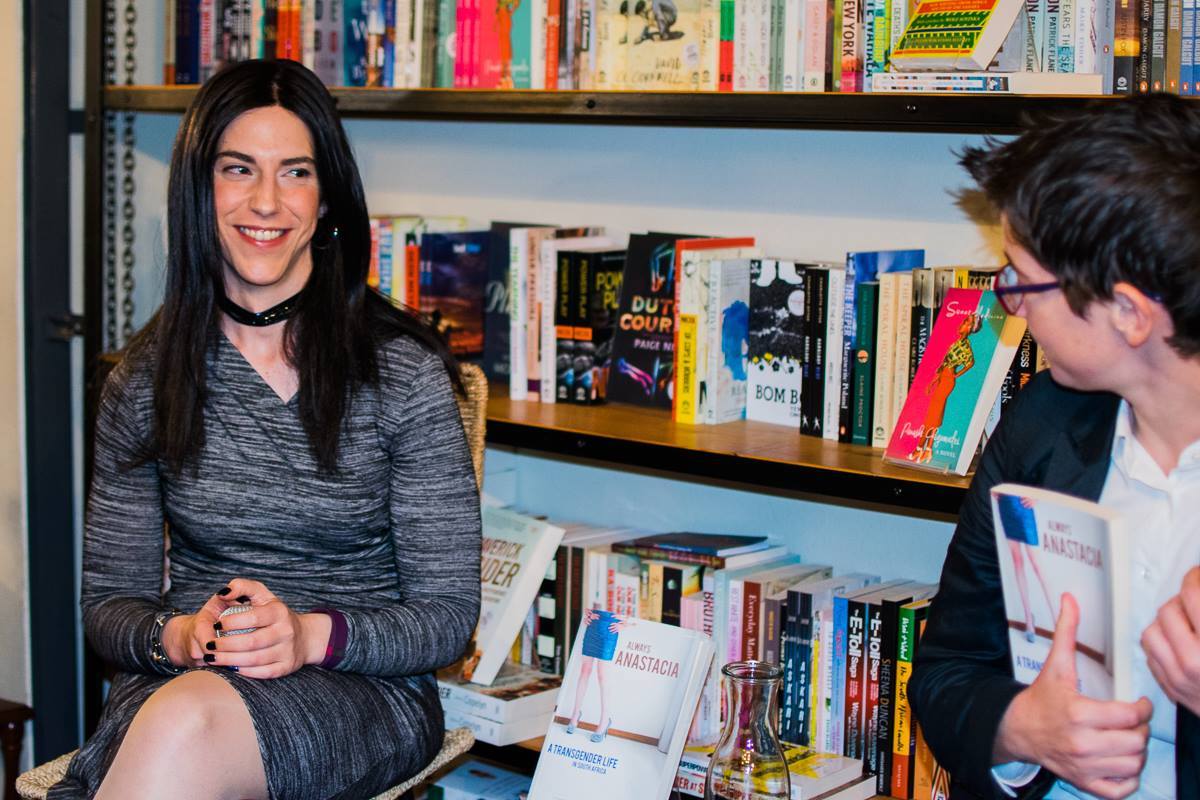Helping a young leader advocate for LGBT health care in Africa
Activists such as Dr. Anastacia Tomson of South Africa, a 2016 Fellowship Alumna, tirelessly advocate for transgender health rights. The Mandela Washington Fellowship for Young African Leaders helps change-makers like her to access the resources, training, and networks to increase their impact.
While the transgender rights movement has come to the forefront of public consciousness in recent years, much work remains to be done.
For cisgender people—people whose gender identity matches their biological sex—health care rights are often taken for granted. However, health care policy about transgender rights remains a particularly complex matter worldwide, especially in Africa. People who identify as lesbian, gay, bisexual, or transgender (LGBT) continue to face discrimination and neglect when they attempt to access health services and information.

Empowering marginalized groups through community education
As a medical doctor who is transgender herself, Dr. Tomson contributes an important perspective to the conversation. And as one of 1,000 Fellows participating in the 2016 Mandela Washington Fellowship for Young African Leaders, she wanted to facilitate better networking and communication opportunities between activists and LGBT organizations.
“I hope that [during the Fellowship] I will gain further insight and understanding into the challenges faced by organizations working with LGBT issues in terms of advocacy and activism,” she said.
Dr. Tomson’s work focuses on community education to empower marginalized groups and to promote awareness and understanding among individuals who may not realize their behavior is discriminatory. She uses her own experiences as a transgender woman to connect with people and promote inclusion.
Persuading youth and adults that LGBT rights are human rights
Dr. Tomson believes that ignorance and prejudice are the biggest challenges facing the LGBT community. In health care, the challenge is particularly nuanced, as “underlying prejudices… manifest in encounters with patients, making LGBT individuals feel unsafe in accessing care.”
Many African countries still criminalize same-sex relationships. Others neglect the implementation of policies that aim to provide equal rights. This shows a disregard for the human rights of transgender people, Dr. Tomson says, and it is caused by social and cultural attitudes that are still rooted in ignorance and prejudice.
Despite these barriers, Dr. Tomson remains unwavering in her defense of human rights. She endeavors to impart information and raise awareness in the hopes of increasing compassion and empathy towards the LGBT community. Dr. Tomson believes that Africa’s young people are crucial in this fight.
In order to [help] the youth of today…to reach their full potential, and to contribute maximally to the society in which they will live, we have to address these intersectional issues and create spaces that truly embrace diversity.”
Dr. Anastacia Tomson, 2016 Fellowship Alumna, South Africa
Through her work on the first Africa Trans Day of Visibility in 2015, and her ongoing work on a Trans Health Conference to be held this November in Georgia, Dr. Tomson hopes to further bridge the gap between the LGBT community and health care. The efforts of advocates such as Dr. Tomson are indispensable in ensuring that societies protect the human rights of LGBT community members.
During her Professional Development Experience with Equal Rights Washington, Dr. Tomson is learning to build partnerships and communication networks between LGTBQIA organizations and activists—principles she hopes to use back home in Africa.
“We could achieve far greater results working in concert than by stumbling blindly in our independent pursuits,” she said. “There is so much to be done, and the more hands we have working together, the sooner we can achieve those goals.”